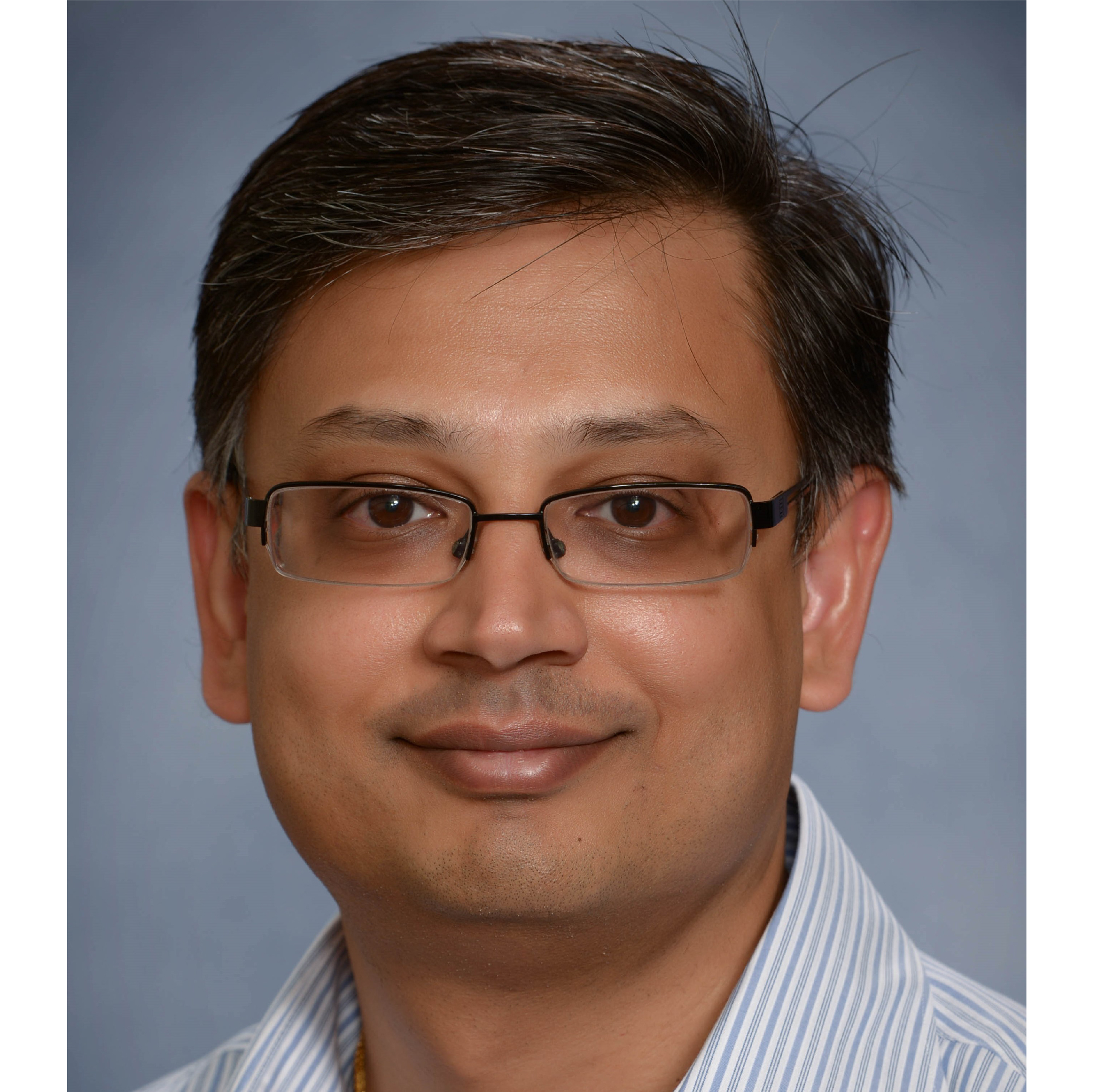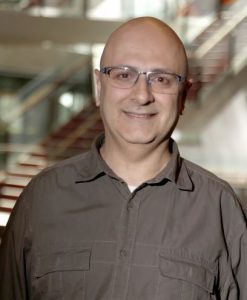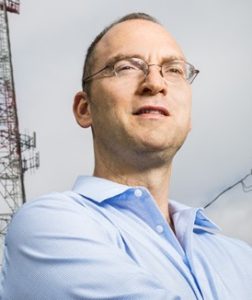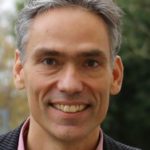Title: The State of MIMO: Anno 2024
Date/Time: October 8, 2024 8.00am – 9:00am PT / 3.00pm – 4:00pm UTC / 5.00pm – 6:00pm CEST
Recording of the event: link
Motivation: Since its inception, MIMO became a must-have technology in wireless systems. During the past three decades it came a long way and its evolutionary branches include extremely large arrays, near-field communication, joint communication and sensing, and several others. The Communication Theory Technical Committee (CTTC) is pleased to organize an online event that will have a critical look at the state of MIMO technology. We have invited two pioneers and stalwarts of MIMO technology, Angel Lozano and Robert W. Heath Jr., who will share their views on various MIMO aspects, such as the role it will play in 6G, energy consumption, which are the relevant research topics, and many more.
Detailed Agenda (time in CEST)
| 17:00 | Opening remarks, by Petar Popovski |
| 17:05 | Introductory remarks by Angel Lozano and Robert W. Heath Jr. |
| 17:15 | Panel debate with questions from the moderatore and the audience |
| 18:00 | End of the event |
Angel Lozanois a Professor at Universitat Pompeu Fabra (UPF) in Barcelona. He received a Ph.D. in Electrical Engineering from Stanford University in 1999, following which he joined Bell Labs (Lucent Technologies, now Nokia) in Holmdel, NJ, where he remained until 2008. Prof. Lozano is a Fellow of the IEEE. He served as area editor for the IEEE Transactions on Wireless Communications (2017-2022) and as associate editor for the IEEE Transactions on Information Theory (2011-2014) and the IEEE Transactions on Communications (1999-2009). He has guest-edited various journal special issues related to MIMO and participated in MIMO standardization activities at 3GPP. He was the Chair of the IEEE Communication Theory Technical Committee (2013-2014) and elected to the Board of Governors of the IEEE Communications Society (2012-2014). Prof. Lozano is the coauthor of the textbook “Foundations of MIMO Communication,” released by Cambridge University Press in 2019. His papers have received several awards, including the 2009 Stephen O. Rice prize, the 2016 Fred W. Ellersick prize, and the 2016 Communications Society & Information Theory Society joint paper award.
Robert W. Heath Jr. is the Charles Lee Powell Chair in Wireless Communications at the University of California, San Diego. Previously, he was the Lampe Distinguished Professor at the North Carolina State University, and the Cockrell Family Regents Chair in Engineering at The University of Texas at Austin. He authored “Introduction to Wireless Digital Communication” (Prentice Hall in 2017) and “Digital Wireless Communication: Physical Layer Exploration Lab Using the NI USRP” (National Technology and Science Press in 2012). He co-authored “Millimeter Wave Wireless Communications” (Prentice Hall in 2014) and “Foundations of MIMO Communications” (Cambridge 2019). He was a member-at-large of the IEEE Communications Society Board-of-Governors (2020-2022) and a member-at-large on the IEEE Signal Processing Society Board-of-Governors (2016-2018). He was EIC of IEEE Signal Processing Magazine from 2018-2020. He is a licensed Amateur Radio Operator, a registered Professional Engineer in Texas, a Private Pilot, and a Fellow of the National Academy of Inventors, the AAAS and the IEEE.
Title: Federated Learning and Analytics
Date/Time: October 23, 2023 9.00am – 10:30am PT / 4.00pm – 5:30pm UTC / 6.00pm – 7:30pm CEST
Recording of the event: LINK
To attend the event, register by filling out the following form (registration deadline October 21, 11:59pm PT): LINK
Question Collection Link before the seminar
Detailed Agenda (time in PT)
| 9:00-9:05 | Welcome Speech, by Ayfer Ozgur |
| 9:05-9:25 | Invited Talk I by Peter Kairouz |
| 9:30-9:50 | Invited Talk II by Deniz Gündüz |
| 9:55-10:30 | Panel Discussions and Questions (Including the ones collected already). Moderator: Ayfer Ozgur |
Moderator: Ayfer Özgür (Stanford University, USA). Ayfer Özgür is an Associate Professor with the Department of Electrical Engineering, Stanford University, where she is the Chambers Faculty Scholar with the School of Engineering. Her research interests include information theory, wireless communication, statistics, and machine learning. She received the EPFL Best Ph.D. Thesis Award in 2010, the NSF CAREER Award in 2013, the Okawa Foundation Research Grant, the Faculty Research Awards from Google and Facebook, and the IEEE Communication Theory Technical Committee (CTTC) Early Achievement Award in 2018. She was selected as the Inaugural Goldsmith Lecturer of the IEEE ITSoc in 2020. In 2023, she also received the Stanford University Electrical Engineering Chair’s award for Outstanding Contributions to Undergraduate Education.
Invited Talk I: Federated Learning in Practice: Reflections and Projections, by Peter Kairouz (Google, USA)
Introduced in 2016 as a privacy-enhancing technique, federated learning has made significant strides in recent years. This presentation offers a retrospective view, delving into the foundational principles of federated learning, encompassing the diverse variants and definitions presented in the ‘Advances and Open Problems in Federated Learning’ manuscript. We highlight key milestones, spotlighting the major implementations within the Google ecosystem and explaining the meticulous efforts dedicated to the fusion of federated learning with secure aggregation and formal differential privacy guarantees. We also touch on the nascent trends on the horizon and provide insights into the evolving landscape of federated learning and its definitions. These evolutionary steps are essential to perpetuate its practical impact.
Peter Kairouz is a Staff Research Scientist at Google, where he focuses on researching and building private, secure, and trustworthy AI technologies. Before joining Google, he was a Postdoctoral Research Fellow at Stanford University. He received his Ph.D. in electrical and computer engineering from the University of Illinois at Urbana-Champaign (UIUC). He is the recipient of the 2012 Roberto Padovani Scholarship from Qualcomm’s Research Center, the 2015 ACM SIGMETRICS Best Paper Award, the 2015 Qualcomm Innovation Fellowship Finalist Award, the 2016 Harold L. Olesen Award for Excellence in Undergraduate Teaching from UIUC, and the 2021 ACM Conference on Computer and Communications Security (CCS) Best Paper Award.
Invited Talk II: Federated Learning over Wireless Networks, by Deniz Gündüz (Imperial College London, UK)
Mobile devices collect massive amounts of data, opening up new potentials for machine learning applications. Federated edge learning (FEEL) can benefit from both the data and processing power distributed across wireless devices, but this brings about many challenges. In this talk, I will focus on the communication aspects of FEEL, particularly focusing on the interference and resource management issues of federated learning among devices sharing the same wireless medium. I will show that FEEL requires a completely fresh look at wireless access and interference management, and highlight novel approaches such as over-the-air computing, update-aware scheduling, and hierarchical FEEL.
Deniz Gündüz is a Professor of Information Processing in the Electrical and Electronic Engineering Department at Imperial College London, UK, where he leads the Information Processing and Communications Lab (IPC-Lab). His research interests lie in the areas of communications and information theory, machine learning, and privacy. Dr. Gündüz is a Fellow of the IEEE, and an elected member of the IEEE Signal Processing Society Signal Processing for Communications and Networking (SPCOM), and Machine Learning for Signal Processing (MLSP) Technical Committees. He serves in editorial roles for the IEEE Transactions on Information Theory (area editor), IEEE Transactions on Communications (area editor), IEEE Transactions on Wireless Communications (editor), IEEE Journal on Selected Areas in Information Theory (guest editor). He is the recipient of the IEEE Communications Society – Communication Theory Technical Committee (CTTC) Early Achievement Award in 2017, Starting (2016), Consolidator (2022) and Proof-of-Concept (2023) Grants of the European Research Council (ERC), and has co-authored several award-winning papers, including the IEEE Communications Society – Young Author Best Paper Award (2022), and IEEE International Conference on Communications Best Paper Award (2023). In 2023, he also received the Imperial College London – President’s Award for Excellence in Research Supervision.
Title: Joint Communications and Sensing for 6G
Date/Time: May 17, 2023 11.30am – 1pm ET / 15:30 – 17:00 UTC
Detailed Agenda (time in ET)
| 11:30-11:35 | Welcome Speech, by Nicolò Michelusi |
| 11:35-11:55 | Invited Talk I by Sofie Pollin |
| 12pm-12:20 | Invited Talk II by Ahmed Alkhateeb |
| 12:25-1pm | Panel Discussions and Questions (Including the ones collected already). Moderator: Nicolò Michelusi |
Invited Talk I: Indoor integrated communication and sensing, by Sofie Pollin (KU Leuven, Belgium)
We introduce the topic of integrated communication and radar sensing. Then, we show how an in-band full duplex communication radio can easily be extended with radar signal processing, almost for free. When extending the concept to MIMO, massive MIMO and cell-free networks, a range of opportunities arise for multi-static joint communication and sensing, even in scenarios with multipath and other non-idealities.
Sofie Pollin is Professor at KU Leuven focusing on wireless communication systems. Before that, she worked at imec and UC Berkeley. Her research centers around wireless networks that require networks that are ever more dense, heterogeneous, battery-powered, and spectrum constrained. Her research interests are cell-free networks, integrated communication and sensing, and non-terrestrial networks.
Invited Talk II: From Multimodal Sensing to Digital Twin-Assisted Communications, by Ahmed Alkhateeb (Arizona State University, USA)
Large-scale MIMO is a key enabler for 5G, 6G, and beyond. Scaling up MIMO systems, however, is subject to critical challenges, such as the large channel acquisition/beam training overhead and the sensitivity to blockages. These challenges make it difficult for MIMO systems to support applications with high mobility and strict reliability/latency constraints. In this talk, I will first motivate the use of multi-modal sensing data to address some of these challenges. Then, I will present a vision where multi-modal sensing, real-time ray-tracing, and machine learning can be integrated to construct real-time digital twins of the communication environments and comprehensively assist all the layers of the communication systems. I will discuss some of the open questions to realize this vision, present a research platform for investigating the digital twin problems, and highlight some initial results.

Ahmed Alkhateeb received his B.S. and M.S. degrees in Electrical Engineering from Cairo University, Egypt, in 2008 and 2012, and his Ph.D. degree in Electrical Engineering from The University of Texas at Austin, USA, in 2016. After the Ph.D., he spent some time as a Wireless Communications Researcher at the Connectivity Lab, Facebook, before joining Arizona State University (ASU) in Spring 2018, where he is currently an Assistant Professor in the School of Electrical, Computer, and Energy Engineering. His research interests are in the broad areas of wireless communications, signal processing, machine learning, and applied math. Dr. Alkhateeb is the recipient of the 2012 MCD Fellowship from The University of Texas at Austin, the 2016 IEEE Signal Processing Society Young Author Best Paper Award, and the NSF CAREER Award in 2021.
Title: Massive Random Access
Link to video recording of the event: click here
Date/Time: March 10, 2023 16:00 – 17:30 CET (GMT+1)
Detailed Agenda (time in CET)
| 16:00-16:05 | Welcome Speech, by Petar Popovski |
| 16:05-16:25 | Invited Talk I on Massive RA by Maxime Guillaud |
| 16:25-16:45 | Invited Talk II on Massive RA by Krishna Narayanan |
| 16:45-17:30 | Panel Discussions and Questions (Including the ones collected already). Moderator: Petar Popovski |
Invited Talk I: Towards Practical Massive Random Access, by Maxime Guillaud (Inria, France)
In multi-user wireless communications, random access departs from the classical set-up of multiple access in the fact that the number and identity of the active transmitters are unknown to the receiver (typically because the sporadic nature of the traffic does not allow for coordination between transmitters). This is a significant departure from the well-understood multiple access schemes (including non-orthogonal multiple access, NOMA). Random access arises e.g. in massive internet-of-things, ultra-reliable and low-latency communications, and non-terrestrial networks applications. This talk will outline why, compared to multiple access, multi-user decoding in random access scenarios is markedly more difficult, and requires to revise some of the basic assumptions that underpin modern multi-user communications systems, such as the pre-existence of synchronization and timing offset compensation, or centralized assignment of pilot sequences. Scenarios of practical interest will be discussed, including fading and multiple-antenna channels, and synchronization impairments. In particular, I will focus on massive random access, which explicitly considers the high-contention regime, i.e. the case where the number of simultaneously active transmitters can be very large, and discuss some of the practical waveforms and coding approaches that have been proposed in practice to solve this problem.
Dr. Maxime Guillaud is a senior researcher at Inria in the MARACAS team in Lyon, France. He has over 20 years of expertise in the domain of wireless communications in both academic and industrial research environments. He received the Ph.D. degree in electrical engineering and communications from EURECOM and Telecom ParisTech in 2005. From 2000 to 2001, he was a Research Engineer with Lucent Bell Laboratories, Holmdel, NJ. From 2006 to 2010, he was a Senior Researcher with FTW, Austria. From 2010 to 2014, he was a research associate at Vienna University of Technology. From 2014 to 2022, he was with Huawei Technologies. His expertise lies the physical layer of radio access networks, including transceiver algorithms, channel modeling, and modulation design.
Invited Talk II: Connections between Unsourced Random Access and Sparse Recovery, by Krishna Narayanan (Texas A&M University, USA)
Multiple access communication has been studied extensively in information theory and wireless communications for several decades. Simultaneously, sparse recovery problems including compressed sensing, group testing, and data stream computing have also been studied in depth within their respective research communities. Although connections between multiple access and sparse recovery were pointed out as early as the 1980s, these fields have emerged mostly independently. A particular version of multiple access communication, called unsourced multiple access has become very popular recently due to its relevance for the Internet of Things and Grant-free multiple access in 5G cellular standards. Developments in unsourced multiple access have strengthened the connections between these fields. I will discuss how ideas from sparse recovery have influenced the development of coding and decoding schemes for unsourced multiple access. If time permits, I will briefly discuss how developments in unsourced random access have influenced the design of schemes for sparse recovery in very high dimensions.
This is joint work with Prof. Jean-Francois Chamberland and several former and current graduate students at Texas A&M University.

Krishna Narayanan is the Eric D. Rubin professor in the Electrical and Computer Engineering department at Texas A&M University. His recent research interests have been in coding theory, massive multiple access for IoT, coded distributed computing, machine learning for joint source channel coding, and graph neural networks. He is a Fellow of IEEE and he recently received the 2022 joint communications society and information theory best paper award and 2020 best paper award in data storage from IEEE communications society.
Title:
OTFS for Next-generation Wireless Communications
Date/Time:
Nov. 13, 2021 17:00 – 20:30 AEDT (GMT + 11)
Detailed Agenda (time in AEDT)
| 17:00-17:05 | Welcome Speech |
| 17:05-18:05 | Invited Talk I on OTFS by Ronny Hadani Presentation Slides |
| 18:05-19:05 | Invited Talk II on OTFS by Emanuele Viterbo Presentation Slides |
| 19:05-20:30 | Panel Discussions and Questions (Including the ones collected already) |
Ronny Hadani received the Ph.D. degree in Pure Mathematics from Tel-Aviv University. His expertise is in representation theory and harmonic analysis, with applications to signal processing. He is the mathematical visionary who, together with CEO Shlomo Rakib, created Cohere’s ground-breaking Orthogonal Time Frequency and Space (OTFS™) wireless modulation scheme and founded the company. He leads Cohere’s research into the capabilities of OTFS and other advanced wireless technologies and how they can enable the next generation of wireless services. In addition to being Cohere’s Chief Scientific Officer, Ronny continues to serve as an associate professor of mathematics at the University of Texas at Austin, a position he held prior to co-founding Cohere.

Emanuele Viterbo received the Ph.D. degree in electrical engineering from the Politecnico di Torino, Torino, Italy, in 1995. He is currently a Professor with the ECSE Department and the Associate Dean of graduate research with Monash University, Melbourne, Australia. From 1995 to 1997, he held a Post-Doctoral position at the Dipartimento di Elettronica, Politecnico di Torino. From 1997 to 1998, he was a Post-Doctoral Research Fellow of the Information Sciences Research Center, AT&T Research, Florham Park, NJ, USA. From 1998 to 2005, he was an Assistant Professor and then Associate Professor with the Dipartimento di Elettronica, Politecnico di Torino. From 2006 to 2009, he was a Full Professor with the DEIS, University of Calabria, Italy. He has been an ISI highly-cited researcher since 2009. His main research interests include in lattice codes for the Gaussian and fading channels, algebraic coding theory, algebraic space-time coding, digital terrestrial television broadcasting, digital magnetic recording, and irregular sampling. He is an Associate Editor of IEEE Transactions on Information Theory. He is also the Guest Editor of IEEE Journal of Selected Topics in Signal Processing with the Special Issue on Managing Complexity in Multiuser MIMO Systems.
Title: Wireless communication with extreme bandwidth: THz and Free-Space Optical
Date/Time:
Wednesday, May 19, 2021 15:00-16:30 CEST
Detailed agenda (time in CEST):
| 15:00-15:05 | Introduction (Petar Popovski) |
| 15:05-15:25 | “Extreme Bandwidth Communication for 6G Wireless Networks” (Mohamed-Slim Alouini, KAUST, Saudi Arabia) Presentation Slides |
| 15:25-15:45 | “RF/THz Front-End Design Challenges for Mobile 6G Wireless Communication” (Ullrich Pfeiffer, University of Wuppertal, Germany) |
| 15:45-16:30 | Panel Discussion and Questions |
Mohamed-Slim Alouini was born in Tunis, Tunisia. He received the Ph.D. degree in Electrical Engineering from the Califonia Institute of Technology (Caltech) in 1998. He served as a faculty member at the University of Minnesota then in the Texas A&M University at Qatar before joining in 2009 the King Abdullah University of Science and Technology (KAUST) where he is now a Distinguished Professor of Electrical and Computer Engineering. Prof. Alouini is a Fellow of the IEEE and of the OSA. He is currently particularly interested in addressing the technical challenges associated with the uneven distribution, access to, and use of information and communication technologies in far-flung, rural, low-density populations, low-income, and/or hard-to reach areas.
Ullrich Pfeiffer received the Ph.D. degree in physics from the University of Heidelberg, Germany, in 1999. From 2001 to 2006 he was with the IBM T.J. Watson Research Center working on RF circuit design for 60GHz communication systems. In 2007 he received an European Young Investigator Award and moved to the University of Siegen, Germany. Since 2008 he holds the High-frequency and Communication Technology chair at the University of Wuppertal, Germany. Prof. Pfeiffer is an IEEE Fellow. He was the co-recipient of the 2004 and 2006 Lewis Winner Award, and the 2012 and 2018 Jan Van Vessem Award at the IEEE Int. Solid-State Circuit Conference. He was a co-recipient of the 2010 EuMC and the 2017 MTT Microwave Prize. In 2021, he received an ERC Advanced grant. He has authored and co-authored 200+ publications and has been principal inventor and co-inventor of 10+ US and international issued patents related to mmWave/THz communication circuits and sensors.




